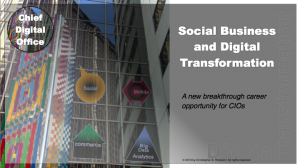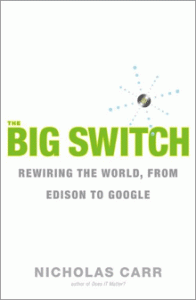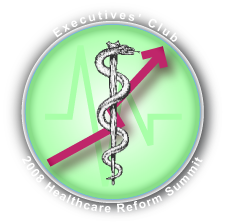 CIO Guide to CDOs and Digital Transformation summarizes a presentation I gave to TechLeaders Association, a Chicago-based CIO group. It will brief you on how digitally empowered B2C and B2B customers are forcing change on enterprises by demanding seamless interactions across digital and analog interfaces, the rise of the Chief Digital Officer and how CIOs can use this disruption to their advantage. Omni-channel will become the new normal in industries in which a leader provides the omni-channel experience and raises the bar. While explaining omni-channel, I asked the room how many had abandoned transactions with ecommerce or mobile sites because they were too difficult to use, and 40% raised their hands. When leaders field their omni-channel experiences, customers will reject laggards en masse. CIOs can use these developments to their advantage, and the CIO Guide to CDOs and Digital Transformation shows how. CIO Guide to CDOs and Digital Transformation summarizes a presentation I gave to TechLeaders Association, a Chicago-based CIO group. It will brief you on how digitally empowered B2C and B2B customers are forcing change on enterprises by demanding seamless interactions across digital and analog interfaces, the rise of the Chief Digital Officer and how CIOs can use this disruption to their advantage. Omni-channel will become the new normal in industries in which a leader provides the omni-channel experience and raises the bar. While explaining omni-channel, I asked the room how many had abandoned transactions with ecommerce or mobile sites because they were too difficult to use, and 40% raised their hands. When leaders field their omni-channel experiences, customers will reject laggards en masse. CIOs can use these developments to their advantage, and the CIO Guide to CDOs and Digital Transformation shows how.
[…]
 The rise of design signaled the fall of Nokia, RIM and Motorola describes how engineering is becoming less important in distinguishing hightech and other products from each other. It also presages a seismic shift away from product towards customer experience in determining market leaders for people-oriented products and services. A very large portion of product companies will follow in the footsteps of these three former mobile phone titans unless they transform their focus from product features (engineering) to customer experience (design). The rise of design signaled the fall of Nokia, RIM and Motorola describes how engineering is becoming less important in distinguishing hightech and other products from each other. It also presages a seismic shift away from product towards customer experience in determining market leaders for people-oriented products and services. A very large portion of product companies will follow in the footsteps of these three former mobile phone titans unless they transform their focus from product features (engineering) to customer experience (design).
By no means do I imply that engineering is not important—in fact, it is more important than ever—I assert that it is less important than design in differentiating people-oriented products. Engineering is abstracted away from the customer/user of the product, and design explicitly addresses how the customer uses the product to attain outcome(s).
Design is to the Knowledge Economy what engineering was to the Industrial Economy.
[…]
 [UPDATED] Social business strategy use cases represent scenarios in which most organizations find themselves, and they reflect some of the choices of which CDOs, CMOs and CEOs may use as they plan to evolve their enterprises in order to either improve returns or simply remain relevant in volatile markets. [UPDATED] Social business strategy use cases represent scenarios in which most organizations find themselves, and they reflect some of the choices of which CDOs, CMOs and CEOs may use as they plan to evolve their enterprises in order to either improve returns or simply remain relevant in volatile markets.
Social business strategy is inherently transformational to large organizations whether they are in commercial, nonprofit or government sectors. All organizations are hives of people communicating and collaborating to execute business processes (“work”). Digital social technologies have reduced the cost of communication (and therefore much collaboration and work) by an order of magnitude (roughly ten times). Collaboration and innovation, before digital social technologies, were slow and expensive. Now they are very fast and inexpensive—when organizations learn how to use them. Organizations that learn how are more responsive to their constituents and customers, so the market rewards them—and will increasingly punish those that lag too far.
These use cases focus on building enterprise social business internal capability, and they are also helpful to consider when selecting social business advisors. Please […]
 As a speaker at the CIO Forum & Executive IT Summit this past week, I spent two days in focused conversations with enterprise CIOs. The summit is co-sponsored by SIM, TEN and ITEEX and is a relatively intimate setting as most attendees are CIOs, and no press is allowed. We spoke about what was top of mind for CIOs and their experiences with social business. It served as an excellent “current state of the CIO,” and I have some surprising takeaways to share. I’ll also offer a surprising prediction and social business guidance to CIOs. As a speaker at the CIO Forum & Executive IT Summit this past week, I spent two days in focused conversations with enterprise CIOs. The summit is co-sponsored by SIM, TEN and ITEEX and is a relatively intimate setting as most attendees are CIOs, and no press is allowed. We spoke about what was top of mind for CIOs and their experiences with social business. It served as an excellent “current state of the CIO,” and I have some surprising takeaways to share. I’ll also offer a surprising prediction and social business guidance to CIOs.
Having advised CEOs, CIOs, COOs and CMOs on adopting disruptive technology at various stages of my career, I have a broad perspective of the enterprise and executive roles. From the mid 1990s through 2006, I focused on enterprise software and corporate strategy. In 2006, I launched CSRA to advise enterprises on social business strategy, and I’ve been working with CMOs, which has been personally rewarding as I have also led marketing several times in my career. For context, here are a few things that most executives don’t yet […]
Curmudgeonly Looking into the Past to Divine the Future—That Nagging Privacy Issue—Debunking the Elephant
 The Big Switch is a valuable book that reflects what has become Nick Carr’s trademark role, heckling IT and Web enthusiasts, albeit from good seats. Carr seems to relish his role as “the fly in the ointment” of the idealistic IT-enabled world that Web missionaries espouse. Although this book has shortcomings, I recommend it for two reasons. First, Carr makes a convincing and useful argument that the “electrification” of business and society (the Edison part) has valuable lessons for the “computerization” transformation of business and society (the Google part) that is currently unfolding. This parallel provides context to think about some of the disruptions around your business, society and career. Second, Carr raises serious questions about possible privacy implications of computerization. He palpably weighs in on the dark side and seems to want the world to change course from the “googlization of life.” If you haven’t read The Long Tail, I would read these books in proximity because they are very complementary and both quick, important reads. The Big Switch is a valuable book that reflects what has become Nick Carr’s trademark role, heckling IT and Web enthusiasts, albeit from good seats. Carr seems to relish his role as “the fly in the ointment” of the idealistic IT-enabled world that Web missionaries espouse. Although this book has shortcomings, I recommend it for two reasons. First, Carr makes a convincing and useful argument that the “electrification” of business and society (the Edison part) has valuable lessons for the “computerization” transformation of business and society (the Google part) that is currently unfolding. This parallel provides context to think about some of the disruptions around your business, society and career. Second, Carr raises serious questions about possible privacy implications of computerization. He palpably weighs in on the dark side and seems to want the world to change course from the “googlization of life.” If you haven’t read The Long Tail, I would read these books in proximity because they are very complementary and both quick, important reads.
As […]
These three examples showed how digitally produced social information could change entrenched human problems like war, excessive punishment and imprisonment and mass death by natural disaster. As such, they serve as examples of widespread change that will occur thanks to social networks and work processes. […]
How to deal with technology disputes when your team gets into prolonged arguments over Web 2.0 tools, vendors or approaches. Taking a customer-centric approach to web 2.0 projects. Unleashing the power of the Web 2.0 conversation within your projects. […]
Web 2.0 Pureplays vs. Enterprise Vendors: A Real Battle compares the value propositions of Web 2.0 pureplays and traditional vendors.

Dennis Howlett, writing in the Irregular Enterprise on 19 March, made the case that enterprise IT just didn’t get social networking and start-ups were going to make some serious hay by bypassing IT and selling right into the business. He had also included a YouTube video in which CIOs commented on the question, “Is Enterprise 2.0 hype or happening?” which provided some light-hearted snippets about a profound subject. There was some valuable information in the post, but I found that it was approaching the issue from within the old paradigm (“battle on two fronts”), and therefore largely left money of the table. I’ll peel the onion here, so get ready to well up.
[…]
IBM Drives Enterprise Adoption of Social Networks with New Enterprise Adaptability Practice offers reportage on the launch of IBM’s enterprise adaptability practice
Shades of Web 3.0—The Googlization of Knowledge Management—Resetting the Adoption Clocks
 Tuesday IBM announced a new services practice, “Enterprise Adaptability” services, which aims to help global companies realize a quantum leap in workforce agility and collaboration by facilitating their adoption of social networks and Web 2.0. As predicted in the Year in Review—2007, social networks and Web 2.0 are being embraced in the enterprise B2B arena this year, and this announcement shows that adoption is right on ahead of schedule. Enterprise 2.0 is reaching the mainstream, and companies that do not aggressively adopt enterprise 2.0 will experience serious competitive threats within three years. Tuesday IBM announced a new services practice, “Enterprise Adaptability” services, which aims to help global companies realize a quantum leap in workforce agility and collaboration by facilitating their adoption of social networks and Web 2.0. As predicted in the Year in Review—2007, social networks and Web 2.0 are being embraced in the enterprise B2B arena this year, and this announcement shows that adoption is right on ahead of schedule. Enterprise 2.0 is reaching the mainstream, and companies that do not aggressively adopt enterprise 2.0 will experience serious competitive threats within three years.
IBM’s announcement validates enterprise social networking, but more significant is their rationale for launching the practice: their clients are struggling with adjusting to the Knowledge Economy, globalization and decreasing margins, and Enterprise Adaptability prescribes collaboration and innovation to cure legendary agility gaps. As explained below, Enterprise Adaptability smells like breakthrough, although it’s barely out of the oven. To look behind the curtain, I caught up with […]
“Yes,” Says Team of Healthcare Experts, Employer CEOs and Patient Representative at the Executives’ Club of Chicago, “But You Must Change Your Ways”
 Honestly Assessing Quality—Engaging Consumer Empowerment—Trading in the Ferrari for a Chevy Honestly Assessing Quality—Engaging Consumer Empowerment—Trading in the Ferrari for a Chevy
The Executives’ Club of Chicago convened its healthcare reform summit at the Hilton Chicago on 20 February 2008, drawing on diverse expertise. Ian Morrison, Ph.D., healthcare futurist, gave the keynote and moderated two panels: first, the healthcare expertise panel with Dean Harrison, CEO Northwestern Memorial Healthcare; William Novelli, CEO AARP; Scott P. Serota, CEO BlueCross BlueShield Association; and second, the business executive panel with Andrew M. Appel, Chairman AON Consulting; John A. Edwardson, CEO, CDW; John B. Menzer, Vice Chairman and Administrative Officer, Wal-Mart Stores. Robert L. Parkinson, CEO, Baxter Healthcare gave an insightful point of view on recommended actions to close the event.
There was broad agreement that the U.S. healthcare system was broken, and speakers offered excellent insights and perspectives about how to fix the system. However, what they didn’t say was as interesting as what they did, and I will address two key issues in […]
|
|
 CIO Guide to CDOs and Digital Transformation summarizes a presentation I gave to TechLeaders Association, a Chicago-based CIO group. It will brief you on how digitally empowered B2C and B2B customers are forcing change on enterprises by demanding seamless interactions across digital and analog interfaces, the rise of the Chief Digital Officer and how CIOs can use this disruption to their advantage. Omni-channel will become the new normal in industries in which a leader provides the omni-channel experience and raises the bar. While explaining omni-channel, I asked the room how many had abandoned transactions with ecommerce or mobile sites because they were too difficult to use, and 40% raised their hands. When leaders field their omni-channel experiences, customers will reject laggards en masse. CIOs can use these developments to their advantage, and the CIO Guide to CDOs and Digital Transformation shows how.
CIO Guide to CDOs and Digital Transformation summarizes a presentation I gave to TechLeaders Association, a Chicago-based CIO group. It will brief you on how digitally empowered B2C and B2B customers are forcing change on enterprises by demanding seamless interactions across digital and analog interfaces, the rise of the Chief Digital Officer and how CIOs can use this disruption to their advantage. Omni-channel will become the new normal in industries in which a leader provides the omni-channel experience and raises the bar. While explaining omni-channel, I asked the room how many had abandoned transactions with ecommerce or mobile sites because they were too difficult to use, and 40% raised their hands. When leaders field their omni-channel experiences, customers will reject laggards en masse. CIOs can use these developments to their advantage, and the CIO Guide to CDOs and Digital Transformation shows how.
 The rise of design signaled the fall of Nokia, RIM and Motorola describes how engineering is becoming less important in distinguishing hightech and other products from each other. It also presages a seismic shift away from product towards customer experience in determining market leaders for people-oriented products and services. A very large portion of product companies will follow in the footsteps of these three former mobile phone titans unless they transform their focus from product features (engineering) to customer experience (design).
The rise of design signaled the fall of Nokia, RIM and Motorola describes how engineering is becoming less important in distinguishing hightech and other products from each other. It also presages a seismic shift away from product towards customer experience in determining market leaders for people-oriented products and services. A very large portion of product companies will follow in the footsteps of these three former mobile phone titans unless they transform their focus from product features (engineering) to customer experience (design). [UPDATED] Social business strategy use cases represent scenarios in which most organizations find themselves, and they reflect some of the choices of which CDOs, CMOs and CEOs may use as they plan to evolve their enterprises in order to either improve returns or simply remain relevant in volatile markets.
[UPDATED] Social business strategy use cases represent scenarios in which most organizations find themselves, and they reflect some of the choices of which CDOs, CMOs and CEOs may use as they plan to evolve their enterprises in order to either improve returns or simply remain relevant in volatile markets. As a speaker at the CIO Forum & Executive IT Summit this past week, I spent two days in focused conversations with enterprise CIOs. The summit is co-sponsored by SIM, TEN and ITEEX and is a relatively intimate setting as most attendees are CIOs, and no press is allowed. We spoke about what was top of mind for CIOs and their experiences with social business. It served as an excellent “current state of the CIO,” and I have some surprising takeaways to share. I’ll also offer a surprising prediction and social business guidance to CIOs.
As a speaker at the CIO Forum & Executive IT Summit this past week, I spent two days in focused conversations with enterprise CIOs. The summit is co-sponsored by SIM, TEN and ITEEX and is a relatively intimate setting as most attendees are CIOs, and no press is allowed. We spoke about what was top of mind for CIOs and their experiences with social business. It served as an excellent “current state of the CIO,” and I have some surprising takeaways to share. I’ll also offer a surprising prediction and social business guidance to CIOs. The Big Switch is a valuable book that reflects what has become Nick Carr’s trademark role, heckling IT and Web enthusiasts, albeit from good seats. Carr seems to relish his role as “the fly in the ointment” of the idealistic IT-enabled world that Web missionaries espouse. Although this book has shortcomings, I recommend it for two reasons. First, Carr makes a convincing and useful argument that the “electrification” of business and society (the Edison part) has valuable lessons for the “computerization” transformation of business and society (the Google part) that is currently unfolding. This parallel provides context to think about some of the disruptions around your business, society and career. Second, Carr raises serious questions about possible privacy implications of computerization. He palpably weighs in on the dark side and seems to want the world to change course from the “googlization of life.” If you haven’t read The Long Tail, I would read these books in proximity because they are very complementary and both quick, important reads.
The Big Switch is a valuable book that reflects what has become Nick Carr’s trademark role, heckling IT and Web enthusiasts, albeit from good seats. Carr seems to relish his role as “the fly in the ointment” of the idealistic IT-enabled world that Web missionaries espouse. Although this book has shortcomings, I recommend it for two reasons. First, Carr makes a convincing and useful argument that the “electrification” of business and society (the Edison part) has valuable lessons for the “computerization” transformation of business and society (the Google part) that is currently unfolding. This parallel provides context to think about some of the disruptions around your business, society and career. Second, Carr raises serious questions about possible privacy implications of computerization. He palpably weighs in on the dark side and seems to want the world to change course from the “googlization of life.” If you haven’t read The Long Tail, I would read these books in proximity because they are very complementary and both quick, important reads. Tuesday IBM announced a new services practice, “Enterprise Adaptability” services, which aims to help global companies realize a quantum leap in workforce agility and collaboration by facilitating their adoption of social networks and Web 2.0. As predicted in the Year in Review—2007, social networks and Web 2.0 are being embraced in the enterprise B2B arena this year, and this announcement shows that adoption is right on ahead of schedule. Enterprise 2.0 is reaching the mainstream, and companies that do not aggressively adopt enterprise 2.0 will experience serious competitive threats within three years.
Tuesday IBM announced a new services practice, “Enterprise Adaptability” services, which aims to help global companies realize a quantum leap in workforce agility and collaboration by facilitating their adoption of social networks and Web 2.0. As predicted in the Year in Review—2007, social networks and Web 2.0 are being embraced in the enterprise B2B arena this year, and this announcement shows that adoption is right on ahead of schedule. Enterprise 2.0 is reaching the mainstream, and companies that do not aggressively adopt enterprise 2.0 will experience serious competitive threats within three years. Honestly Assessing Quality—Engaging Consumer Empowerment—Trading in the Ferrari for a Chevy
Honestly Assessing Quality—Engaging Consumer Empowerment—Trading in the Ferrari for a Chevy